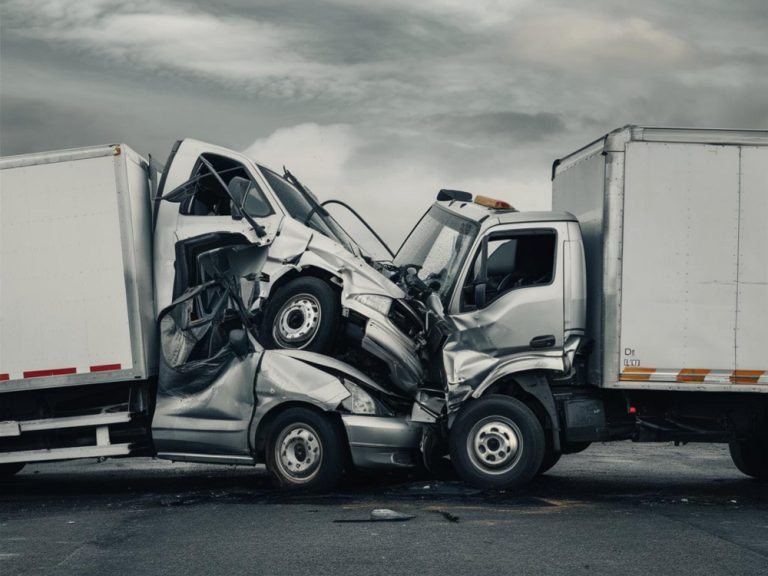Step 1: Understanding What Compensation Really Means
In truck accident cases, compensation, legally known as damages, covers the total financial and emotional harm caused by another party’s negligence. Under Illinois law 735 ILCS 5/13-202, victims can recover both economic and non-economic damages.
Economic Damages include emergency room and hospital bills, future medical treatment or rehabilitation costs, lost wages and loss of earning potential, damage to your vehicle or personal property, and home or vehicle modifications for disability.
Non-Economic Damages include pain and suffering, emotional distress or PTSD, loss of enjoyment of life, disfigurement or permanent disability, and loss of companionship in wrongful death cases.
In some rare cases involving gross negligence or reckless behavior, we may also pursue punitive damages, which are designed to punish the at-fault party, such as when a trucking company knowingly violates safety regulations. You can learn more about proving these violations in Who Is Liable in a Truck Accident.
Step 2: Identifying Every Liable Party and Their Coverage
In truck accident cases, one of the most important steps we take is finding all potential sources of compensation. Unlike a simple car accident, a truck crash might involve multiple responsible parties.
- The truck driver for negligent driving
- The trucking company for unsafe scheduling or poor maintenance
- The cargo loader for improper freight handling
- The truck manufacturer for defective parts
- The maintenance contractor for failed inspections
Each of these parties may carry separate insurance policies, and under 625 ILCS 5/7-601, commercial carriers in Illinois must carry minimum liability coverage of 750,000 dollars to 5 million dollars depending on what they transport.
We often find that the trucking company’s insurer tries to settle quickly and quietly before all the facts are known. That is why we conduct a full liability analysis before accepting any offer. You can see how this process works in The Truck Accident Claim Process.
Step 3: Calculating Economic Losses
The financial side of your claim starts with hard numbers, but it does not end there. We collect and calculate all measurable costs to make sure nothing is overlooked.
- Medical bills from every provider
- Projected future treatment based on doctor testimony
- Lost wages from time off work
- Loss of future earning capacity, especially for clients who cannot return to their old jobs
- Property damage estimates including vehicle replacement and towing
When necessary, we work with financial and vocational experts to quantify long-term losses such as how a spinal injury impacts lifetime earning potential. Even a single missed detail in this phase can lower total recovery by thousands of dollars, which is why we personally review every financial record before settlement talks begin.
Step 4: Calculating Pain, Suffering, and Emotional Losses
No formula can truly measure what victims go through after a truck crash. Illinois law allows us to pursue compensation for non-economic damages, the emotional and physical pain that does not come with a receipt.
We document this by keeping medical and therapy records, using journal evidence or family statements describing daily pain, including before-and-after narratives about quality of life, and consulting medical experts about chronic pain or permanent limitations.
In one of our cases, a client suffered a traumatic brain injury after being struck by a semi-truck on I-90 near the Jane Byrne Interchange. The insurance company initially valued her pain and suffering at 50,000 dollars. After presenting testimony from her neurologist and family, we secured a six-figure non-economic award that reflected her real suffering. If you are curious how fault affects these outcomes, we cover that in Who Is Liable in a Truck Accident.

Step 5: Comparative Negligence and How Fault Affects Compensation
Illinois uses a modified comparative negligence rule 735 ILCS 5/2-1116. This means your total compensation is reduced by your percentage of fault as long as you are less than 50 percent responsible.
For example, if your total damages are 400,000 dollars and you are found 10 percent at fault for the crash, you can still recover 360,000 dollars. However, if you are 50 percent or more responsible, you recover nothing.
We have seen insurance companies exploit this rule, trying to pin partial blame on victims for minor actions like braking suddenly. That is why we collect black box data, witness statements, and reconstruction reports to push back on these tactics. You can read more about how we prove fault in Who Is Liable in a Truck Accident.
Step 6: Negotiating With Insurance Companies
Insurance companies are experts at minimizing payouts, especially in truck cases where millions may be at stake. Their first offer is almost never fair.
When we handle a case, we prepare a comprehensive demand letter outlining all damages, support it with medical reports, expert opinions, and photographs, present liability findings that strengthen our position, negotiate firmly, and prepare for trial if needed.
If negotiations stall, we do not hesitate to file a lawsuit. That leverage often leads to better settlements because most insurers do not want to face a well-prepared trial team. We explain more about how we manage these phases in The Truck Accident Claim Process.
Step 7: The Role of Medical Experts and Life Care Planners
Truck accidents can cause catastrophic injuries from spinal cord trauma to amputations. In such cases, we work closely with medical experts and life care planners to estimate lifetime costs. Their reports cover future surgeries, long-term medication and therapy, home nursing or personal assistance, and adaptive equipment or home modifications.
This documentation not only strengthens the claim but also ensures our clients have the financial support they will need years down the line. For examples of these injuries, visit What To Do After a Truck Accident in Chicago.
Step 8: When a Case Goes to Trial
While most cases settle, we prepare every one as if it is headed for trial. Juries in Cook County and surrounding areas often respond strongly when they see proof of corporate negligence, especially when trucking companies ignore safety rules to protect profits.
In court, we present expert testimony, black box data visualizations, medical illustrations, and before-and-after impact statements. This level of preparation helps us secure maximum verdicts or settlement leverage even before trial begins.
Step 9: Your Next Step Toward Full Recovery
If you have been hit by a semi-truck in Chicago, you deserve a clear understanding of your financial rights. Every case we handle begins with one goal, to recover the full value of what you have lost, not what the insurance company says you deserve.
Do not guess your case’s worth. Let us talk about the details of your injuries, liability, and recovery path today. To understand how your claim will unfold from start to finish, read The Truck Accident Claim Process. To learn what to do immediately after your accident, visit What To Do After a Truck Accident in Chicago. For a broader legal overview, explore Expert Truck Accident Lawyers in Chicago – Fight for Your Rights.




